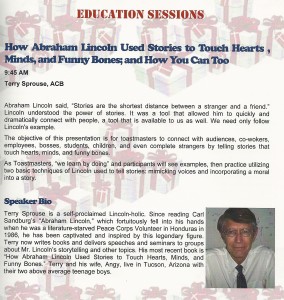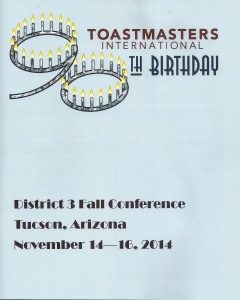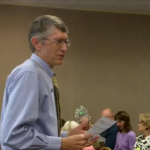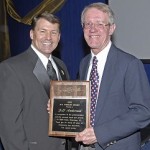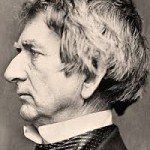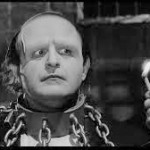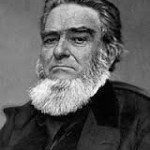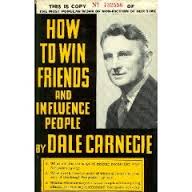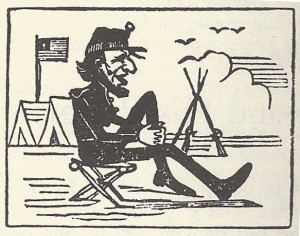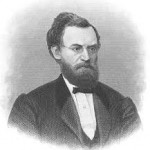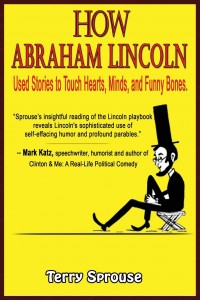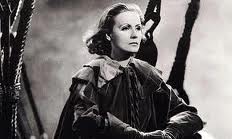Do your remember that last time you were tied up in knots because you were facing an overwhelming problem?
Then, out of the blue, at 4:00 in the morning, you wake up and the answer to your problem flashes into your mind.
The really interesting question is, how do you respond to this epiphany? By immediately acting on this inspiration, or ignoring it as fanciful, or not practical, and letting the idea fade from your memory?
Ralph Waldo Emerson said:
“A man should learn to detect and watch that gleam of light which flashes across his mind from within,” and “abide by that spontaneous impression” even if the whole world is against you.
While we may under-value this great source of inspiration, there are people who have held onto it with every bit of strength that they have, and that has made all the difference in their lives.

Philippe Petit
The Artistic Crime of the Century
On August 7, 1974, Phillippe Petit rigged a wire between New York City’s World Trade Center Twin Towers and walked back and forth across the 200 foot distance between the world’s tallest buildings eight times before he was arrested. He was almost one mile (1,400 feet) above the ground, walking on a 3/4 inch wire.
Policemen sent to apprehend Petit were so awed by the scene unfolding before their eyes that instead of arresting him they watched in amazement. One policeman said, “We thought we’d never see anything like this again in our lifetime.”
The “artistic crime of the century” took six years of planning. Petit made several trips to New York for first hand observations. He built a scale model of the towers in France to practice on.
But, as fantastic as the actual feat is, of more interest is how did Petit come by this stupendous obsession?
Petit discovered the World Trade Center in 1968 when he saw an artist’s rendition of the yet-to-be-built structure in a magazine while sitting in the waiting room of his dentist’s office. Petit was mesmerized by the drawing, and from that moment, tightrope walking between the two twin towers became his life obsession.
He never thought, “how much is this going to cost” or “will this take too much time.” He only thought, “I’m going to do it.”

Will Rogers
I Never Met a Man I Didn’t Like
Will Rogers was the single most popular and beloved man of his era. The inscription on his tombstone reads, “I never met a man I didn’t like.”
Rogers was raised in Claremore, Oklahoma. He worked as a ranch hand and became very good at roping and rope tricks. Because of his magical skills with the rope, he was hired by the owner of a traveling group of entertainers to perform his rope tricks.
While Will was extremely talented, and had many dazzling tricks, he did the show in complete silence. His show was entertaining but he was not one of the top attractions.
What changed Will Rogers from silent rope tricks to international fame as the “Cowboy Philosopher”?
According to his wife, Betty Rogers, the turning point in his career came one night when he was attempting one of his most difficult rope tricks of jumping through the lariat with both feet. This particular night, he only got one foot through the rope, instead of two. The other foot got tangled in the rope. He was embarrassed and made the off-the-cuff remark, ” Well, I got all my feet through the rope, except one.” The audience exploded in laughter.
Betty said, when that happened a light came on in Will’s mind.
From then on, in each performance, Will purposely failed when doing that trick, and each time his funny comment brought the house down.
Will began to include more off-the-cuff humor into his act, and the manager of the show asked Will to introduce the other acts and make humorous comments in the process. His fame grew. He went on to host radio shows, wrote daily newspaper columns, and at the time of his death in 1935, he was the highest paid actor in Hollywood.
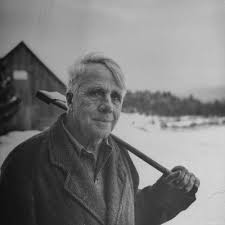
Robert Frost
Miles to Go Before I Sleep
The woods are lovely, dark and deep,
But I have promises to keep,
And miles to go before I sleep,
And miles to go before I sleep.
This is the final stanza from Robert Frost’s most beloved poem, “Stopping By The Woods on a Snowy Evening.”
Frost wrote hundreds of poems but this one is considered his masterpiece.
What inspired Frost to write these haunting words?
Frost said that he had been up all night writing a long poem and had finally finished when he opened the front door and realized it was morning. He went out to view the sunrise and, and in his words, he suddenly got the idea to write the poem “as if I’d had a hallucination” and wrote it in just “a few minutes without strain.”
Phillippe Petit, Will Rogers, and Robert Frost, all embraced their bolt of inspiration.
They accepted it without fear or hesitation, allowed it to take over their lives.
Think about this the next time you are in your dentist’s office and pick up a magazine to read.
Upcoming “Turn Your Home Into a Rental House ” Radio Interviews (most shows can be heard on the internet)
Wednesday, August 14th, at 9:15 am (eastern), I’ll be on Dave Kelber’s show, WRNJ Radio, Hackettstown, NJ. http://wrnjradio.com (to listen live).
Watch this space for information on additional interviews.
Related Articles
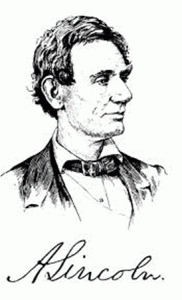 Abraham Lincoln said, “Stories are the shortest path between strangers and friends.”
Abraham Lincoln said, “Stories are the shortest path between strangers and friends.”